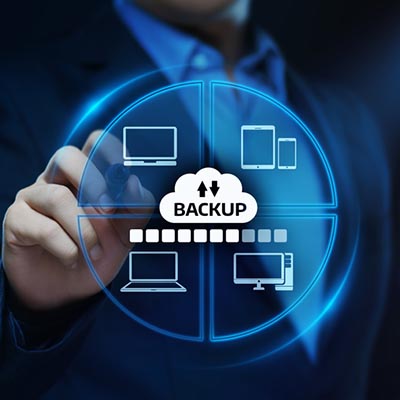Why Do You Need a Data Backup for Your Business?

What drives you to backup or restore your PC? Are you making backups for IT protection, protecting against spam, or just because you like the idea of having a backup? If your answer is the latter, then it is time to read this article. We will discuss backup software, why backup is important, and how you can back up your files.
Backup of Data is Important:
Backups are important for many reasons. Why do we backup? Is it to prevent data loss, protect against spam, or ensure that important documents are not lost or corrupted? Backups are important for IT protection because most IT professionals believe that backups are an effective way to prevent and recover from system failures. In other words, backups are crucial for recovery.
Why is it important for a business to backup its important data? It is important because if your server goes down for any reason, you could lose all the work you've done on that database. This means lost time, lost income, and in some cases lost reputation as well. Therefore, data backup and ransomware removal are an integral part of most businesses.
Types of Backup:
Now that you know why backups are important, let's talk about what kind of backup are you using, and how it can help you. There are two basic types of backups – local and remote. Remote backups are taken from the internet (using the internet interface of your PC or a remote server) and are oftentimes more convenient than local backups. However, local backups are much better for IT recovery, because it takes backups to a local hard drive that is always onsite.
What kind of backup are you using for your business? Many companies use off-site storage media, such as tape backup, hard drives, and CD-R (CD-RW) media. However, in many cases, these backup types are not enough for data recovery needs. Sometimes a business requires actual physical storage media backup, such as an external hard drive, DVD, or cable drive. If this is your case and your company depends on physical offsite media storage, rather than cloud storage, Corodata offers custom offsite media storage services for your data on magnetic tape, cartridges, optical media, and other types of physical backups.
Data Safety Procedures:
If your business uses off-site storage media, be sure to check the data's safety procedures of your storage media. Many times magnetic tapes can retain data forever but are not very reliable in terms of consistency. They also tend to get corrupted over time and lose data. It's best to store backups on magnetic tapes in a separate location, such as a safety deposit box in a bank.
In some cases, you may need both off-site and on-site backup solutions. If you're an online business, you may find that you have data backup needs on several different computers that are networked. This means that you may have a backup running on each computer that is connected to the network. It's important for your backup to be consistent between these computers so that if one backup runs, everyone will see the same results. For small businesses without networked storage space, this can be especially challenging, since on-site storage is usually more reliable.
Easy to Protect Data:
Cloud backup software helps make your data protection easier than ever. Most cloud services use a pay-per-click model, which means that you only pay for what you use. This means that no matter how big or small your business is, you can use the cloud to help protect your data. The best cloud providers offer backup applications that can be used on mobile devices and web browsers.
Keeping your data safe and secure is always important. When your backup is stored on-site or off-site, there are several risks. The risks tend to be more extreme in the event of natural disasters. While disasters such as earthquakes, fires, and floods may seem to destroy your information at an instant, most storage media is normally recoverable. Your data is, after all, very expensive and often irreplaceable.
839GYLCCC1992



Leave a Reply